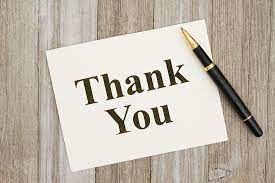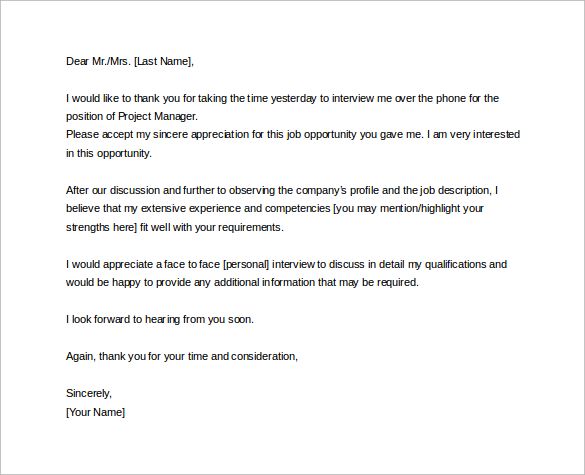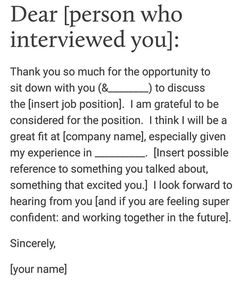Stepping into your first job is an exciting milestone, but it’s also a moment when many freshers shy away from one of the most crucial conversations, salary negotiation. While the…

How to Write a Thank-you Mail After An Interview? – Formats, Types
In the competitive world of job hunting, every detail matters. You’ve meticulously crafted your resume and aced the interview questions, and now you wait. But your work still needs to be finished. A well-written thank-you note after an interview can be the tipping point that sets you apart from the competition.
This article delves into the art of the post-interview thank-you note, exploring its purpose, key components, and the significant impact it can have on your candidacy.
Table of Content
- What is a Thank-you Note?
- What to Include in a Post-Interview Thank-You Letter?
- Post-interview Thank-you Letter Sample Formats
- Types of Thank-You Notes After a Job Interview
- Why You Should Send a Thank You Note After a Job Interview?
- Why Is It Important to Send a Thank You Note?
- FAQs on Thank You Letter Format
What is a Thank-you Note?
A thank-you note, in the context of job hunting, is a brief message expressing your gratitude to the interviewer(s) for their time and consideration. It serves as a follow-up communication, reinforcing your interest in the position and reiterating key points discussed during the interview.
Crafting a well-worded thank-you note can leave a lasting impression on potential employers and significantly influence their decision-making process.
What to Include in a Post-Interview Thank-You Letter?
An effective thank-you note should be concise, professional, and tailored to the specific interview. Here’s a breakdown of the key elements:

- Salutation: Address the interviewer by name, using Mr./Ms./Mx. and their last name. If interviewed by a panel, send individual notes or address them collectively as “Dear [Hiring Manager name] and the [Company name] Interview Team.”
- Expression of Gratitude: Thank the interviewer(s) for their time and for considering you for the position. Be specific, mentioning the date of the interview and the job title you discussed.
- Reiterate Your Interest: Enthusiastically restate your interest in the role and the company. You can briefly mention what excites you about the opportunity.
- Highlight Your Skills & Experience: Briefly reference a specific aspect of your skills or experience that aligns well with the job requirements discussed in the interview.
- Next Steps: Express your eagerness to learn more about the next steps in the hiring process.
- Closing: Thank the interviewer again for their time and consideration. Use a professional closing like ‘Sincerely’ or ‘Best regards.’
- Signature (for handwritten notes): Include your full name for clarity.
Post-interview Thank-you Letter Sample Formats
Here are some sample formats for different types of thank-you notes you might need to write after a job interview:
Standard Thank-You Email
|
Subject: Thank You – [Your Name] – [Job Title] Interview Dear [Interviewer Name], Thank you so much for taking the time to speak with me today about the [Job Title] position at [Company Name]. I truly enjoyed learning more about the role and the team. Our conversation about [Specific topic discussed] was particularly interesting, and it further solidified my belief that my skills and experience in [Your relevant skill] would be a valuable asset to your team. I am very enthusiastic about the opportunity to contribute to [Company Name]’s mission of [Company mission statement]. Thank you again for your time and consideration. I look forward to hearing from you soon regarding the next steps in the hiring process. Sincerely, [Your Name] |
|---|
Panel Interview Thank-You Email
|
Subject: Thank You – [Your Name] – [Job Title] Interview Dear [Interviewer Name], Thank you for taking the time to speak with me yesterday as part of the interview panel for the [Job Title] position at [Company Name]. I enjoyed learning more about the role and [Company Name] from your perspective. Our discussion about [Specific topic discussed with this interviewer] was particularly insightful. My experience in [Your relevant skill] aligns well with what you mentioned regarding [Specific need mentioned by interviewer]. I am very interested in the opportunity to contribute to [Company Name]’s success, and I believe my skills and experience would be a valuable asset to the team. Thank you again for your time and consideration. Sincerely, [Your Name] |
|---|
Follow-Up Thank-You Note
|
Subject: Following Up – [Your Name] – [Job Title] Interview Dear [Interviewer Name], I hope this email finds you well. I am writing to follow up on my interview for the [Job Title] position at [Company Name] on [Date of interview]. I remain very interested in the opportunity and wanted to reiterate my enthusiasm for the role. Since the interview, I have [Briefly mention something you’ve done that further reinforces your interest or qualifications]. This experience has only strengthened my desire to join your team. Thank you again for your time and consideration. I look forward to hearing from you soon. Sincerely, [Your Name] |
|---|
Remember to replace the bracketed information with your specific details.
Types of Thank-You Notes After a Job Interview
While the core elements of a thank-you note remain consistent, the format and approach can be tailored depending on the interview scenario. Here’s a breakdown of the different types of thank-you notes you might need to write:
Standard Thank-You Note
This is the most common type of thank-you letter, suitable for a traditional one-on-one interview with a single interviewer. It follows the structure outlined previously, expressing gratitude, reiterating interest, and highlighting key points.
Panel Interview Thank-You Note

If you interviewed with a panel, sending individual thank-you notes to each interviewer demonstrates extra effort and personalization. While the core message remains the same, address each note to a specific interviewer and reference something specific they discussed.
Follow-Up Thank-You Note
If you haven’t heard back from the company after a reasonable timeframe (usually a week), a follow-up thank-you email can be a gentle nudge to keep your candidacy at the forefront. Keep this note concise and professional, simply reiterating your interest and availability.
Thank You Note for the Rejection
While uncommon, expressing gratitude even after a rejection showcases your professionalism and good manners. Thank the interviewer for their time and consideration, and wish them well in their search. This could potentially leave a positive impression and open doors for future opportunities within the company.
Informal Thank-You Note
In some cases, you might have a more informal interview setting, perhaps over coffee or lunch. A thank-you email can still be appropriate, but you can adjust the tone to be slightly less formal while maintaining professionalism.
Virtual Interview Thank-You Note
The core message remains the same for a virtual interview thank-you note. However, you can acknowledge the virtual format and express your appreciation for their flexibility.
Remember, regardless of the format, a well-written thank-you note is an investment in your job search. It takes minimal effort but can significantly impact your chances of landing your dream job.
Why You Should Send a Thank You Note After a Job Interview?
While a thank-you note might seem like a formality, it serves several crucial purposes:
- It shows professionalism and courtesy, leaving a positive final impression.
- It reinforces your enthusiasm for the position and keeps you top-of-mind.
- It allows you to subtly emphasize a specific strength discussed in the interview.
- A well-written note showcases your written communication skills, crucial for many roles.
- Taking the time to send a thank-you note demonstrates your proactive nature and genuine interest.
Why Is It Important to Send a Thank You Note?
Beyond the reasons mentioned above, here are some additional benefits of sending a thank-you note:
- Demonstrates Initiative: Taking the time to write a thank-you note shows that you’re proactive and take initiative, qualities valued by most employers.
- Corrects Misconceptions: If you stumbled on a question or answer during the interview, the thank-you note allows you to clarify or provide additional information.
- Sets the Tone for Future Communication: A positive and professional thank-you note can set the stage for a smooth communication flow throughout the hiring process.
By following the guidelines outlined in this guide and crafting personalized, well-thought-out thank-you notes, you can leave a lasting impression on potential employers and increase your chances of landing the job.
Remember, a little gratitude can go a long way in making a positive impact on your job search journey.
Related Articles:
- Tips for Writing a Simple Job Application Letter
- Career Objective for Freshers
- The Functional Resume Format
- Resume Summary for Freshers
FAQs on Thank You Letter Format
How do you write a thank you letter after an interview?
To write a thank-you letter after an interview, begin with a sincere expression of gratitude, mention specific aspects of the interview, reaffirm interest in the position, and express appreciation for the opportunity. Tailor the letter to the company and interviewer, keep it concise, and proofread before sending
How soon after an interview should I send a thank you?
It’s best to send a thank-you email within 24-48 hours after an interview to demonstrate promptness and keen interest in the position. This timing allows you to express gratitude while the interview is still fresh in the interviewer’s mind.
How do you say thank you for an interview opportunity?
Express appreciation for the interview opportunity by thanking the interviewer for their time, highlighting specific aspects of the interview you found valuable, and reiterating your enthusiasm for the role and the company. Keep the tone professional and genuine.
How do you respond to thank you notes after the interview?
Respond to thank-you notes after an interview with a brief message expressing gratitude for their kind words. Acknowledge their appreciation and reaffirm your interest in the position. Keep the response concise and professional, maintaining the positive rapport established during the interview.
How do you write a thank you letter?
When writing a thank-you letter, start with a polite greeting, express gratitude for the recipient’s actions or assistance, mention specific reasons for appreciation, and close with a courteous farewell. Customize the letter based on the recipient and context, keeping it concise and professional.
Can I write thank you in a formal letter?
Yes, it’s appropriate to include “thank you” in a formal letter. Begin the letter with a formal salutation, express gratitude for the recipient’s actions or assistance, provide specific details about why you’re thankful, and close with a professional sign-off.
How do you say thank you professionally in an email?
To say thank you professionally in an email, begin with a polite greeting, express gratitude clearly and specifically, provide context or details about what you’re thankful for, and end with a professional closing. Keep the email concise and focused on expressing genuine appreciation.
How do you express gratitude in an email?
Express gratitude in an email by starting with a polite greeting, clearly stating what you’re thankful for, providing context or details if necessary, and ending with a courteous closing. Use professional language and tone, and ensure the email is concise and focused on expressing genuine appreciation.
Latest Posts
How to Write a Job Application Letter (With Samples)
When it comes to applying for your first job, making a great first impression is crucial. As a recent graduate, you might feel a little intimidated by the idea of…
Data Science vs Data Analytics – Everything You Need to Know!
In today’s digital economy, Data Science and Data Analytics have become some of the most sought-after career paths for students and freshers, especially in India. With businesses increasingly relying on…
How to Become a Data Scientist in India? – After Graduation!
In today’s data-driven world, the role of a Data Scientist is not just lucrative but also highly impactful. The demand for data scientists continues to soar across industries. These skilled…
How to Start an AI Career in India: Skills and Future of Work
Artificial Intelligence (AI) is revolutionizing industries worldwide. From automating routine tasks to enabling self-driving cars and intelligent healthcare diagnostics, AI is reshaping the future of work. For college students and…
Popular Posts
100+ Quantitative Aptitude Questions for Placement with Answers
Quantitative aptitude questions play a crucial role in campus placements, competitive exams, and entry-level job interviews. Whether you are preparing for your first job interview, an aptitude test for placement,…
How to Start an AI Career in India: Skills and Future of Work
Artificial Intelligence (AI) is revolutionizing industries worldwide. From automating routine tasks to enabling self-driving cars and intelligent healthcare diagnostics, AI is reshaping the future of work. For college students and…
How to Write Mail for Job Application – Explained
A job application email is a professional email that you send to a potential employer to express your interest in a job opening. It is typically accompanied by your resume…
Google Internship 2026 for Freshers: All You Need to Know
In the competitive landscape of technology careers, a Google internship stands out as a golden opportunity for aspiring professionals. Whether a college student or a recent graduate, securing an internship…
How to Write a Job Application Letter (With Samples)
When it comes to applying for your first job, making a great first impression is crucial. As a recent graduate, you might feel a little intimidated by the idea of…
